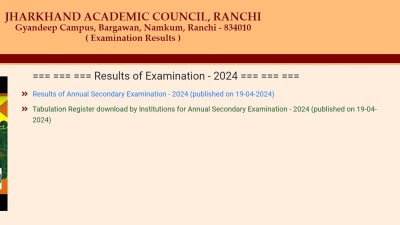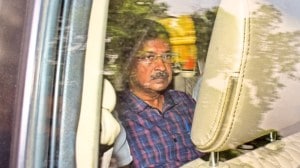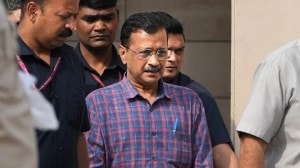- India
- International
Meghalaya starts turning single-use plastic to road-building material
Chief Minister Conrad Sangma issued directives to look for solutions and in 2018, the state had a solution — it built its first plastic road in Nongstoin in West Khasi Hills.
 Meghalaya Chief Minister Conrad Sangma.
Meghalaya Chief Minister Conrad Sangma.
Even before Prime Minister Narendra Modi urged the nation to shun single-use plastics in his Independence Day speech, the state of Meghalaya, its streams and rivers choked with single-use plastics (SUP), knew first-hand the havoc it caused.
Chief Minister Conrad Sangma issued directives to look for solutions and in 2018, the state had a solution — it built its first plastic road in Nongstoin in West Khasi Hills. Now, Meghalaya’s counter against SUPs has taken off with the impetus it got after Modi’s message, and the Swachh Bharat Mission.
After the 2018 success, two more roads were built in Nongstoin in quick succession (each of the three plastic roads are 1 km each), followed up by 5 km of plastic roads in Sangma’s home constituency of Tura in 2019, and 10 more kilometres are currently under construction. And the roads are funded through the Chief Minister’s Rural and Urban Development Funds.
The best part about these projects, according to Sangma, is not just the effective reuse, and the elimination of plastic from Meghalaya’s landscape. He says that the communities that live in villages and towns near the new roads collected and supplied the plastic required to construct them.
The state is now looking at using SUPs to build roads across the state, with one signature road slotted for capital Shillong “to create awareness”.

“We could have just built plastic roads but it would never have had the kind of impact it does now if we had not involved the community. Creating awareness about single-use plastic was equally important,” Sangma told The Indian Express.
With the movement picking up across Meghalaya, the government has already collected 70 metric tonnes of SUPs, says Sangma. For instance, over the past two months, just in Pynursla block, five tonnes of plastic waste was collected. Also, 50,000 cloth bags manufactured by cement companies in the state have been distributed as alternatives to plastic bags.
“Cement companies are some of the highest producers of plastic waste because of the bags they store cement in. The manufacture of cloth bags was a part of their Extended Producer Responsibility (EPR). Of course, the entire plastic collected so far will not be used just for plastic roads but for other purposes, and a lot will be sent for recycling,” said Sangma.
“The plastic roads we have constructed have been cheaper than bitumen roads and have also been water-resistant. In a high rainfall state like Meghalaya, this has been effective,” he said.
The man who spearheaded the North East’s first plastic road, Arun Kumar Kembhavi, said plastic roads were an “effective way to eliminate single-use plastic”. He was DC West Khasi Hills when he took on the Nongstoin project. Sangma has since made him Mission Director for Swachh Bharat in Meghalaya.
While the technology for plastic roads has existed for decades, and roads have been built across the country on an experimental basis, it has not received the kind of impetus witnessed in Meghalaya, say officials.
“When I spoke with Solid Liquid Resource Volunteers, who are in charge of collecting waste in the state, they told me that while they could sell SUPs like pet bottles to scrap dealers, there was no resale value of articles like chips packets and confectionery packets because of the aluminium lining. Recycling them was difficult,” said Kembhavi.
“So after research, we decided to use them to build plastic roads. We sent one of our engineers to train under a professor at Tyagaraj College of Engineering in Madurai, who is an expert on plastic roads. He came back and the process started….”
He said that according to known research, plastic heated at this particular temperature has no toxic emissions. “It’s been two years since the Nongstoin road, and the roads are still in good condition. Despite heavy rains, we have not had to repair them even once,” he said.
Apr 19: Latest News
- 01
- 02
- 03
- 04
- 05






































